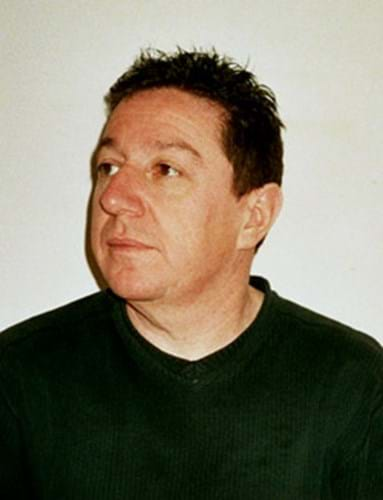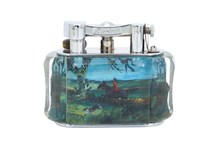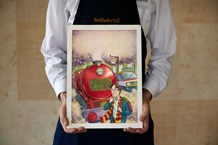
Barry Spearing, who ran the once-thriving Wrentham Antiques, near Southwold, before it mysteriously closed six years ago tried to hide antiques worth up to £750,000 in a Lowestoft warehouse after telling a customs officer that he had got rid of the stock, a court heard.
When a local dealer who was owed £350,000 by Spearing tracked down the antiques, the warehouse was quickly cleared after Spearing got wind of the fact that the authorities were on to him.
Spearing, 48, also sold half a dozen properties below their market value and carried out a £200,000 fraud on his bank, Ipswich Crown Court was told.
In January 2006 Spearing, of Green Drive, Lowestoft, was found guilty in his absence by a jury of ten offences relating to a £1.9m fraud dating back to 2002. The offences, which Spearing denied, included three charges of false representation on land registration, four offences of using false instruments and making gift or transfer of property on company property before bankruptcy.
Following his conviction, he was ordered to pay a £1,873,870 confiscation order or face seven years in prison.
After three years on the run in Bulgaria, the authorities finally caught up with Spearing and he was extradited back to the UK earlier this year and held in custody to await sentence.
On April 1, Judge David Goodin jailed Spearing for three-and-a-half years for the fraud. He directed that the seven-year sentence for failing to pay the confiscation order would be served consecutively.
Sentencing him he said: "These offences represent a careful, calculated, considered attempt to cheat creditors out of considerable sums of money."
During Spearing's trial, the court heard that he had owned Wrentham Antiques, near Southwold, which had a turnover of more than £1m. However, in November 2002 he was declared bankrupt with total liabilities of more than £2m.
The prosecution claimed that Spearing tried to manipulate his assets as he approached bankruptcy so creditors would not get as much money from him.
"In anticipation of bankruptcy, he rearranged his assets to his best advantage and those close to him to the detriment of creditors who were left with nothing," said James Pavry, prosecuting.
"He deprived his estate of £400,000 which in bankruptcy could have gone to his unsecured creditors," said Mr Pavry.
He also claimed that Spearing had sold antiques worth up to £1m to another party for £100,000.
He had also dishonestly used blank cheques given to him by a Canadian business acquaintance to pay £327,000 into his bank. He had then used accounts belonging to relatives to launder the money which resulted in a £200,000 loss to his bank.
Stephen Spence, acting for Spearing, said his client had fled to Bulgaria after receiving threats. "The police felt the threats were serious enough to install panic alarms," he said.
He said that while in Bulgaria Spearing had "kept his head down" and had obtained work. He said there was no evidence of him having a "fancy" lifestyle.
He said Spearing's business had been a victim of its own success which had led to it expanding too quickly.
He said Spearing had been good at buying and selling antiques but had experienced cash-flow problems.




